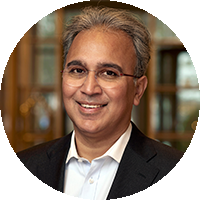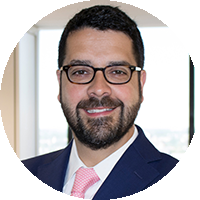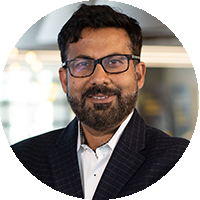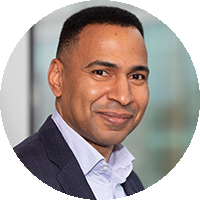EY refers to the global organization, and may refer to one or more, of the member firms of Ernst & Young Global Limited, each of which is a separate legal entity. Ernst & Young Global Limited, a UK company limited by guarantee, does not provide services to clients.

The EY Global Executive (GE) has signed this statement to demonstrate its commitment to uphold and promote human rights.
At EY, we believe upholding human rights is fundamental to our purpose of building a better working world.
The EY Global Code of Conduct, which is anchored in our core values and beliefs, provides the ethical and behavioral framework to guide the business decisions we make every day. Our Global Human Rights Statement builds on our Code, to reflect our understanding of the fundamental rights of all human beings and our commitment to promote respect for those rights.
We draw our understanding of these rights from the Universal Declaration of Human Rights, its related treaties and declarations, and the broader ethical reasoning behind their development. Our approach to respecting and upholding human rights is informed by the United Nations Guiding Principles on Business and Human Rights, which, among other things, state that businesses have a responsibility to:
- Avoid causing or contributing to adverse human rights impacts through their own activities, and address such impacts when they occur
- Seek to prevent or mitigate adverse human rights impacts that are directly linked to their operations, products or services by their business relationships, even if they have not contributed to those impacts
In addition to avoiding and mitigating potential harm, we seek to proactively support and promote human rights for the wider benefit of the communities in which we operate. Our objective is to enhance the awareness and consideration of human rights across the EY network in the interests of all EY people and those with whom they interact.
The rights of all EY people
We are committed to upholding the human rights of EY people. Specifically, we strive to respect the following human rights, in accordance with the EY Global Inclusion and Non-Discrimination policy, that we have identified to be most salient to EY people, in our work environment:
- Health and safety — The right of all people to enjoy a physically and psychologically safe work environment
- Labor rights — The right of all people to just and favorable terms of employment
- Diversity, equity and inclusiveness — The right of all people to be respected and valued for their differences, with equitable opportunities and outcomes, in an inclusive environment where all can thrive
Impact of client engagements
As a professional services organization, we recognize our role in the communities in which EY member firms operate. EY member firms consider not only whether they can perform an engagement, but whether they should perform that engagement. While the specific role of EY may be complex and indirect, it can still be consequential, and we have a responsibility to better understand how EY services, and the clients receiving them, interact with human rights and the public interest at an individual and systemic level.
Rightsholders in our supply chains
Our responsibility to respect human rights extends beyond the direct operations of EY member firms into their supply chains, where we seek to influence the broad adoption of labor rights and maintain an active view of the human rights performance of our direct and indirect suppliers. In accordance with the EY Global Supplier Code of Conduct, this includes taking steps to understand the risks of human rights violations in our supply chains, validating our assessment through supplier engagement, and supporting suppliers to reduce risk and remediate adverse human rights impacts.
Active inclusiveness
EY continues to accelerate progress on diversity, inclusiveness and overall greater social equity through the work of the EY Global Diversity and Inclusiveness Steering Committee and Global Social Equity Taskforce, among other things. We actively work toward recognizing and addressing disparities, and creating a better, more inclusive working world for all. This includes proactive initiatives, system and process reviews, policies, learning and development, and external efforts around the world, for the benefit of both EY people and those in the EY ecosystem. Example areas of focus and impact include procurement, key internal talent processes, and collaboration with external stakeholders and communities.
Operationalizing this statement
At the most basic level, we operationalize our human rights obligations through the EY Global Code of Conduct, supported by a comprehensive communication and training program. In addition, we have numerous initiatives, such as the EY Global Social Equity Taskforce, that seek to realize our expectations for a more just and equitable workplace. More broadly, our ambition is to expand this training into more specialized programs and initiatives that seek to drive heightened awareness and capability regarding human rights. This will integrate human rights considerations into our decision-making and our broader engagement with civil society.
Grievances and remediation
Any human rights concerns arising within our business can be raised via the EY Ethics Hotline. The hotline provides EY people, suppliers, clients and others outside of EY with a means to confidentially report such concerns without fear of retaliation. We are committed to ensuring that all reports are appropriately heard, investigated and remediated as required.
Governance and monitoring
Ultimate responsibility for this statement sits with the GE, which brings together EY leadership functions, services and geographies, and its subcommittee, the Corporate Responsibility Governance Council (CRGC). The GE and CRGC regularly update and monitor our commitment to acknowledge and uphold human rights.







Rajiv Memani
EY Global Growth Markets Council Chair; EY Africa India Regional Managing Partner and India Managing Partner
See profile





























